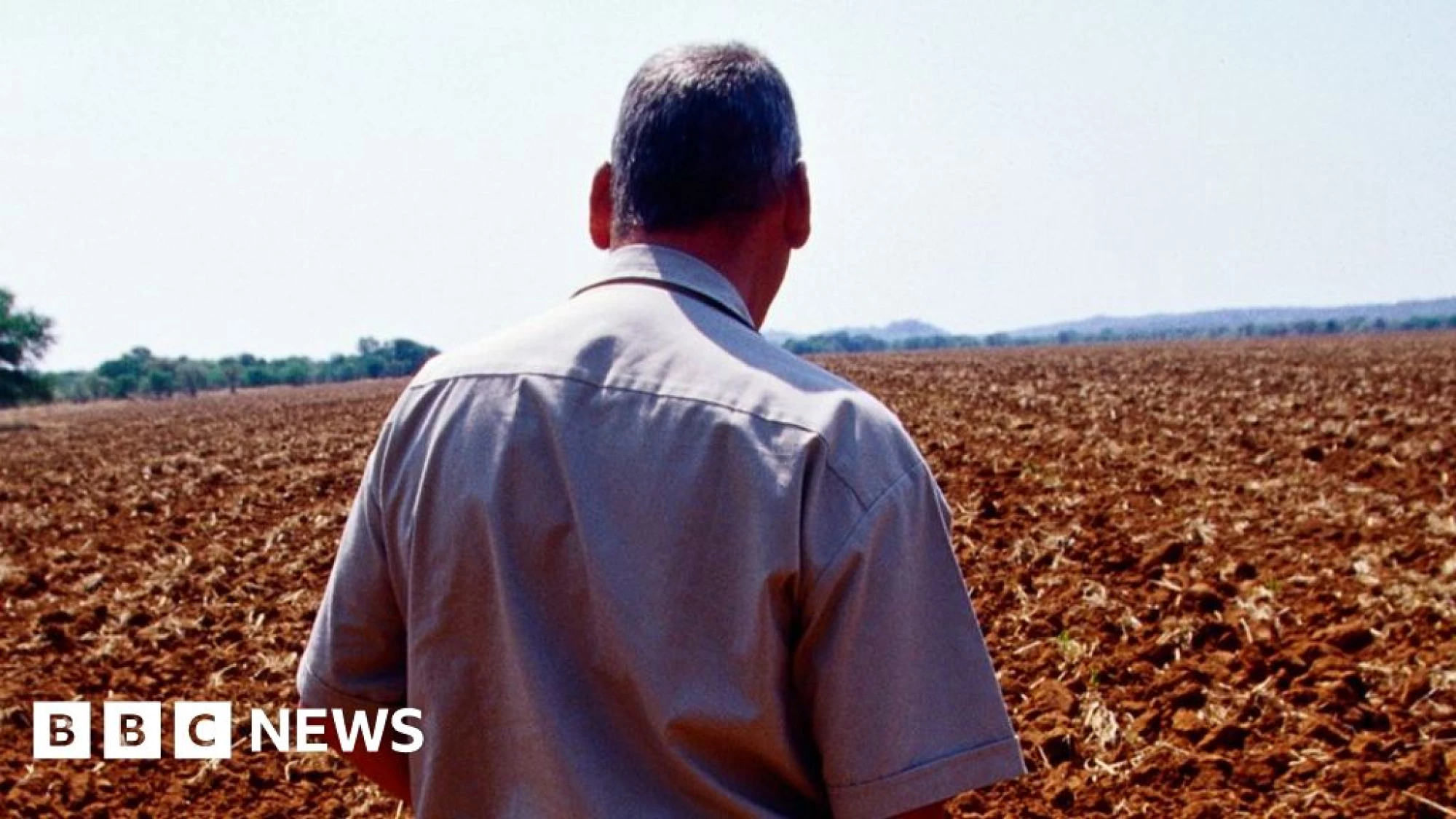Zimbabwe's farming fallout 25 years on: Deal or no deal?

Some white farmers accept compensation 25 years after land reform began - others fight on.
Watch LiveBritish Broadcasting CorporationHomeNewsSportBusinessInnovationCultureArtsTravelEarthAudioVideoLiveHomeNewsIsrael-Gaza WarWar in UkraineUS & CanadaUKUK PoliticsEnglandN. IrelandN. Ireland PoliticsScotlandScotland PoliticsWalesWales PoliticsAfricaAsiaChinaIndiaAustraliaEuropeLatin AmericaMiddle EastIn PicturesBBC InDepthBBC VerifySportBusinessExecutive LoungeTechnology of BusinessFuture of BusinessInnovationTechnologyScience & HealthArtificial IntelligenceAI v the MindCultureFilm & TVMusicArt & DesignStyleBooksEntertainment NewsArtsArts in MotionTravelDestinationsAfricaAntarcticaAsiaAustralia and PacificCaribbean & BermudaCentral AmericaEuropeMiddle EastNorth AmericaSouth AmericaWorld’s TableCulture & ExperiencesAdventuresThe SpeciaListEarthNatural WondersWeather & ScienceClimate SolutionsSustainable BusinessGreen LivingAudioPodcastsRadioAudio FAQsVideoLiveLive NewsLive SportHomeNewsSportBusinessInnovationCultureArtsTravelEarthAudioVideoLiveWeatherNewslettersWatch LiveDeal or no deal? Zimbabwe still divided over land 25 years after white farmers evicted1 day agoShareSaveShingai NyokaBBC News, HarareShareSaveGetty ImagesBefore the land reform programme, Zimbabwe had about 2,500 white farmers owning 4,000 farmsA quarter of a century after their land was seized during a chaotic land reform programme that made global headlines, a small group of white Zimbabwean farmers have accepted a controversial compensation deal from the government.
Once the backbone of the country's agricultural sector, many of them are now elderly, visibly frail, battling illness and financially desperate.
"I believe this is the only opportunity. We can't wait 10 years for another deal, " 71-year-old Arthur Baisley told the BBC.
Still recuperating from back surgery, Mr Baisley was among those who arrived earlier this year at a conference room in the capital, Harare - some aided by walking sticks and walking frames - to discuss the deal.
The catch is that these farmers have now been paid only 1% of their total compensation in cash - the rest is being issued as US dollar-denominated treasury bonds that mature in 10 years – with 2% interest paid twice a year.
https://www.bbc.com/news/articles/c3d15lx10k1o
Rating: 5